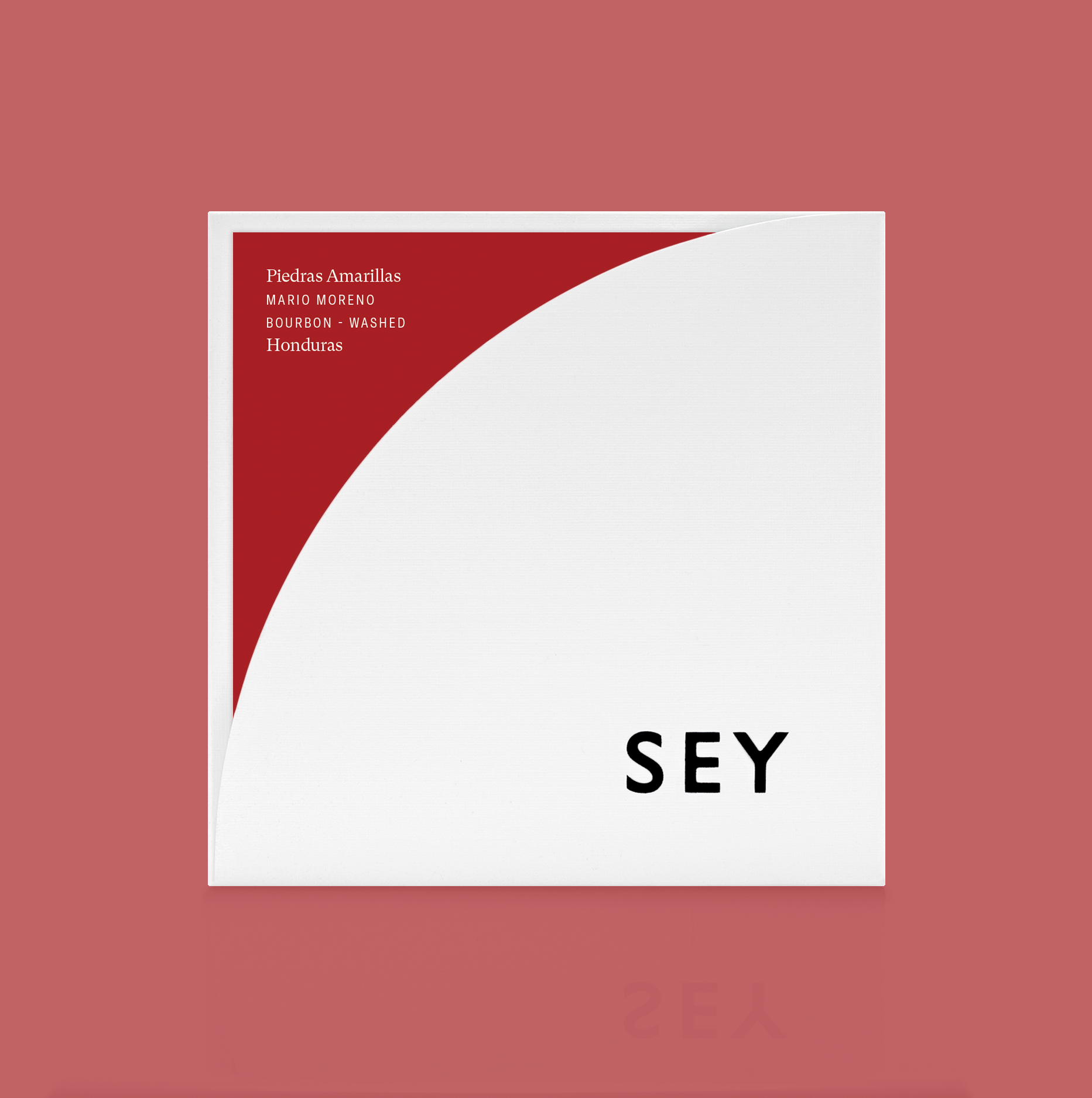
This is our third year buying from Piedras Amarillas, but the first year we've been able to offer this 100% Bourbon separation. This selection is interesting as a study of variety, especially in contrast to the Pacas lot we are also featuring. In the cup, we find dried apple, powdered sugar, and salted plum.
Bourbon
Santa Bárbara
1,650 masl
May, 2020
Hand picked at peak ripeness. Floated to further remove defects. Depulped. Dry fermented for 24 hours. Washed. Dried on raised beds for 16 days.
ABOUT PIEDRAS AMARILLAS
Piedras Amarillas (yellow stones) gets its name from the abundance of yellow rocks scattered throughout this small 4-hectare (9.9 acre) plot. The farm is a communal project between three of the Moreno brothers: Mario, Danny, and Mabel, and consistently produces high quality Pacas, Bourbon, and Catuai coffees. The Morenos have been a cornerstone of coffee production in Santa Bárbara, dating back to their father, Daniel Moreno, who purchased his first farm in 1963.
ABOUT BOURBON
Bourbon is the most famous of the Bourbon-descended varieties. It is a tall variety characterized by relatively low production and excellent cup quality, but is susceptible to all the major coffee plant diseases. In the early 1700’s French missionaries carried Bourbon from Yemen to Bourbon Island (now Réunion), giving it the name it has today. The variety spread to other parts of the world beginning in the mid-1800’s as the missionaries moved to establish footholds in Africa and the Americas. Today, in Latin America, Bourbon has largely been replaced by varieties that descend from it—notably Caturra, Pacas, Catuai, and Mundo Novo—although Bourbon itself it is still cultivated in El Salvador, Guatemala, Honduras, and Peru.
Pricing Details
Farm Gate (Local)
162.28 LEMPIRA/KG
Farm Gate (USD)
$6.60/KG
FOB
$7.92/KG
FOT
$10.57/KG
The cost of getting a coffee from cherry to beverage varies enormously depending on its place of origin and the location of its consumption. The inclusion of price transparency is a starting point to inform broader conversation around the true costs of production and the sustainability of specialty coffee as a whole.